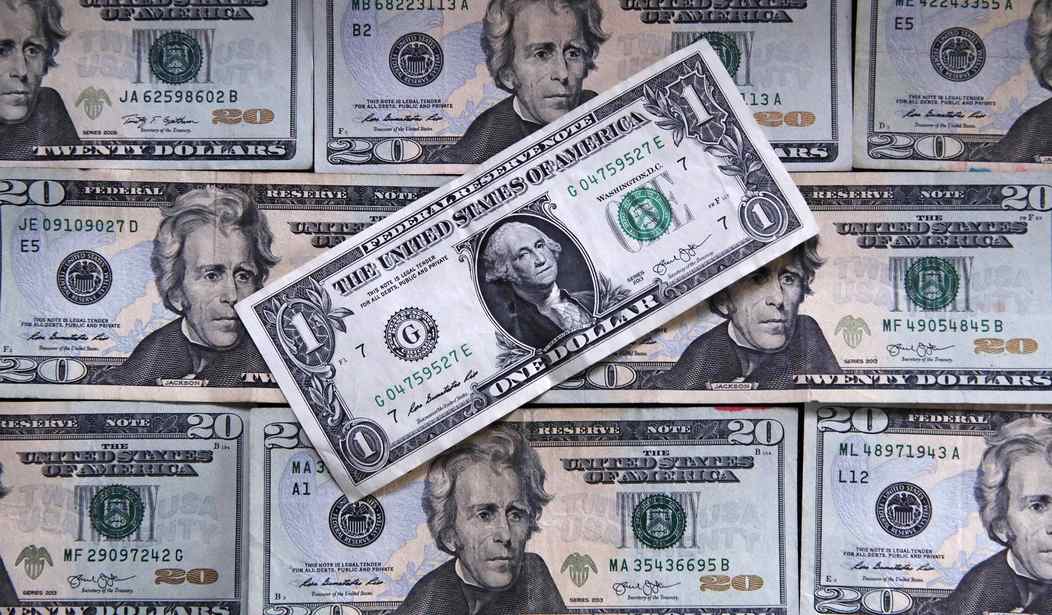It's that day again: Federal income taxes are due! I'm sure it's a happy day for everyone reading this, knowing that we can trust the federal government to be wise stewards of the contributions we make from our hard-earned incomes, to be used to support and improve life for everyone here in these United States.
Now, when you're all done dry-heaving, I'll get on to what I really intended to say, which is this: Our tax system is badly broken, nobody really understands it, and the only reason it stays that way is that Congress will never vote to remove even part of that power to tax, which is the power to pick winners and losers, to impede and impair, to unfairly favor, to destroy.
And at no time throughout the year should this be more on the forefront of the national consciousness than today, Tax Day.
See Related: Are You a Drug Dealer or Thief? Don’t Forget to Give Uncle Sam His Due During Tax Season
Sen. Elizabeth Warren Is on the Warpath Against TurboTax Again, Completely Misses the Real Problem
My wife does our taxes, and for many years, it's been a task that makes her more than a little irritable around tax season. She's very good at making sure we pay every single penny the law requires us to pay, and not one penny more, and it's not always easy. I've been self-employed for over twenty years. We pay estimated quarterly taxes, which involves basing the first quarter's payment on last year's final return, which can be a real pain if you wrapped up a very successful gig in December and have no income for a quarter or two, which in my old life as an independent corporate consultant wasn't at all unusual. More on that in a moment.
So, how can we extract ourselves from this mess? My first instinct is to say, "We can't." As noted above, Congress will never willingly deprive themselves of the power that taxation gives them. But as Robert Browning said, "Ah, but a man's reach should exceed his grasp, or what's a heaven for?" As it happens, I have some ideas on how to fix the tax system.
First: Eliminate withholding. Everyone, every quarter, has to send money to the IRS. Everyone gets their entire paycheck and then has to pay up. The withholding system is too painless; most people scarcely glance at their paycheck stub, and if everyone were required to write a check for quarterly estimated taxes and send it to the various levels of government, I'd wager a substantial sum that they would suddenly become a lot more interested in what government does with their money.
Second: Eliminate “progressive” taxation. Implement a single-rate flat tax with no exemptions or deductions for individuals. Everyone pays something. I’d be willing to consider exempting the first, oh, $40k from taxation, if that’s what it took to get it done – in return, I’d want major welfare reform, to include lifetime limits and severe restrictions on how public aid is delivered – no more open-ended debit cards.
Third: How about eliminating the capital gains tax next? You want people to invest their hard-earned in business ventures, then stop double-taxing them on income earned from money they already paid taxes on once. Want businesses to start bringing capital back from overseas? Eliminate the capital repatriation penalty. Both of those taxes are well to the left of stupid if economic growth is on the agenda, but these taxes were sold by the “We’ll soak those rich guys” school of political campaigning.
There's a lot more we could do, but this would be a good start.
Taxation is (theft) also a function of economics. Incentives matter. Taxation has the power to punish success and reward failure, which is precisely what our current tax system does, and the taxpayers accept it because, frankly, most people know next to nothing about economics. It’s common enough for folks who don’t understand economics to assume that if one person makes a million bucks, someone else somehow makes less; that the economy is a pie of fixed size, instead of being something that can grow. That’s the purest of corral litter. Elon Musk, for example, has made billions from his various enterprises, and nobody else was deprived. Musk has made his money through trade, meaning, a voluntary exchange of value. In any real economic transaction, the exchange is voluntary, and both parties realize a perceived gain in value; everybody wins, and nobody loses.
It’s also common enough for folks who don’t understand economics to fail to understand what the wealthy do with their excess capital. The wealthy (with, I suppose, a few rare exceptions) don’t hide it in huge Scrooge McDuckian vaults, where they can dive in and swim around in a pool full of gold coins. You can only spend so much on houses and yachts. That makes it easy for politicians to go on the stump and yell about the rich "paying their fair share." But that's just false. Most capital is invested; it is used to develop new products, start new businesses, and expand existing ones; it goes into the capital markets, and again, everybody gains, especially the millions of people whose retirement funds are invested in those markets. The tax system should encourage this — instead, it discourages it.
To be honest, none of these reforms are at all likely. If anything, the opposite will happen. The tax system will grow ever more complex and convoluted, ever more unfair to the productive, and ever more profitable to the legions of tax preparers and tax attorneys whom most ordinary citizens must rely on to help them navigate the taxation labyrinth.
Meanwhile, the nation is $34 trillion in debt and sinking further every day.
Happy Tax Day, one and all! And remember: Taxation is theft!















Join the conversation as a VIP Member